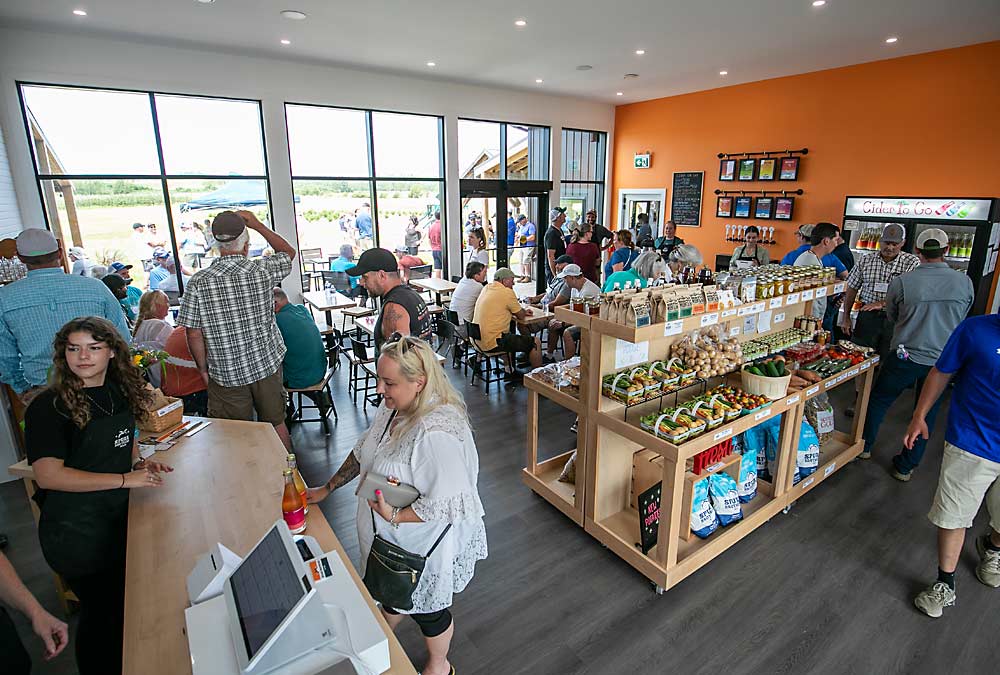
Like a lot of growers, the owners of Spurr Bros. in Nova Scotia meet together regularly in winter and spring, start every summer with the intention of continuing that rhythm, but by fall find themselves so slammed with work that meeting in person is a rarity.
During fall harvest, communication is limited to quick, informal conversations — and texting. Lots and lots of texting, co-owner William Spurr said.
“In fall, it’s straight ahead, no time for meetings,” said co-owner Lisa Jenereaux, Spurr’s sister. “But we’re talking every day about who’s doing what or who needs what done. We try to make sure everybody knows what’s going on and we’re getting done what we need to get done.”
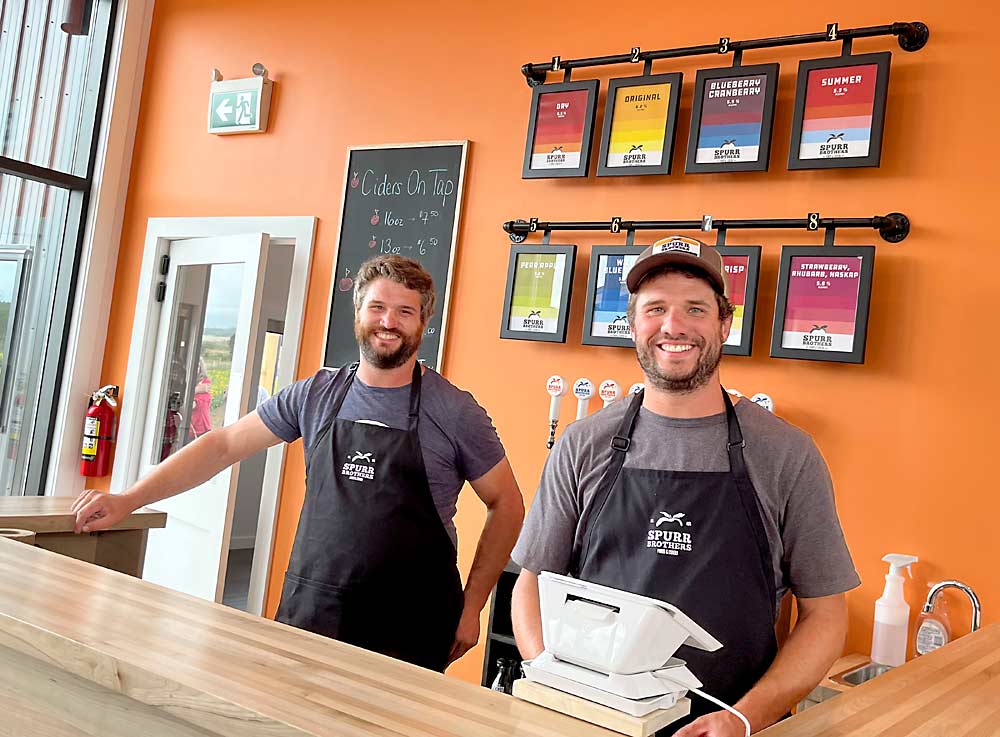

With nearly 800 acres of fruit, vegetables and commodity crops, and a foot in both the wholesale and direct retail worlds, Jenereaux, Spurr and their cousin, co-owner Katie Campbell, have adopted a strategy to divide, conquer and communicate as they continue to diversify their fifth-generation family farm.
This year provided plenty to talk about. It was a year of wild weather in the Canadian province. A winter freeze killed their peaches. Heavy rains in summer and fall upended spray schedules and much else. Their apples looked good despite all the precipitation, though they were a little worried about how the fruit would hold up in long-term storage.
But the Spurr family is used to the challenges of maintaining a diversified farm. They’ve been growing apples and other crops in Nova Scotia’s Annapolis Valley since 1875. Today, Jenereaux manages the tree fruit, Spurr oversees the commodity crops and makes the hard cider, and Campbell manages the farm market and handles the bookkeeping. Jenereaux and Spurr’s dad, Bill, is semiretired but still maintains the farm equipment. Their brother, John Spurr, operates equipment, sprays crops, drives trucks and does whatever else needs doing.
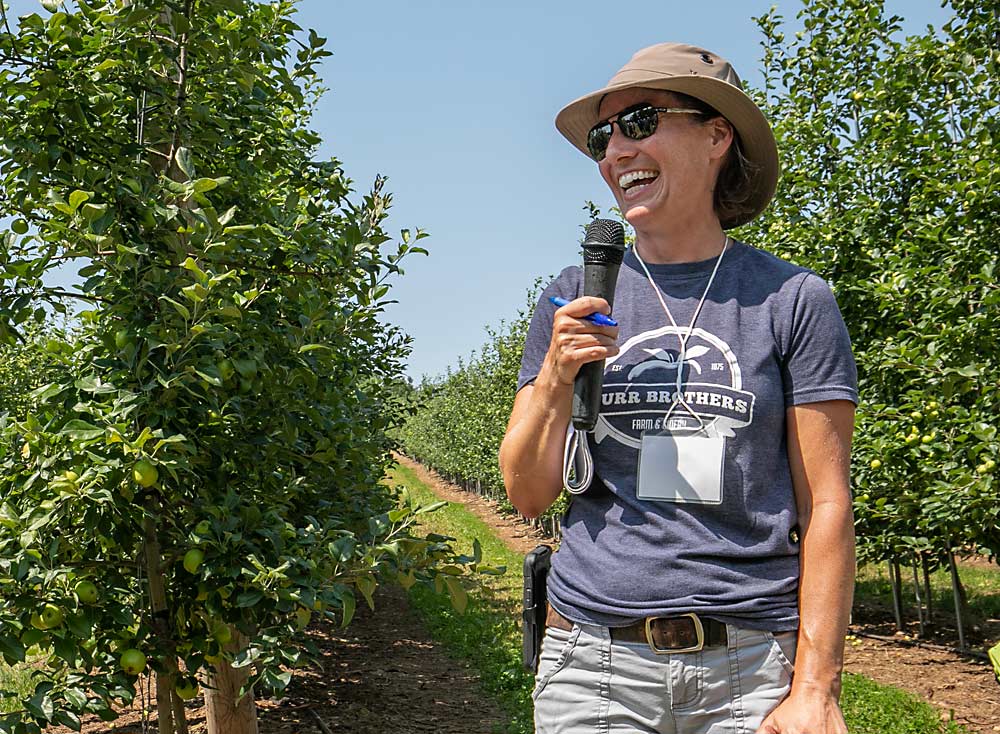
Spurr Bros. grows about 100 acres of apples, 5 acres of pears and 2 acres of peaches. They also have grain crops, soybeans, onions, carrots, pumpkins, squash, berries and garlic, to name a few more. They grew 250 acres of potatoes until recently, when they decided to get out of wholesale potatoes to focus on farm marketing.
Demand for local produce and other products in the Annapolis Valley pushed them toward more direct retail sales. Their previous market space wasn’t very big, so they opened a larger market in August 2022, just a few miles from the main farm. They’ve been encouraged by customer reactions to the new market and are hosting food trucks, live music and other events to turn it into a destination.
The new market has increased everybody’s workload. Instead of managing two employees, Campbell now manages 10. Packaging and produce are purchased in larger quantities, and more often. Jenereaux looks after the building exterior, grounds and general décor. Spurr manages the market’s hard-cider taproom. He observed cidermaking in England and studied it in the United States then, three years ago, started selling his own blends that include fruit from the family farm.
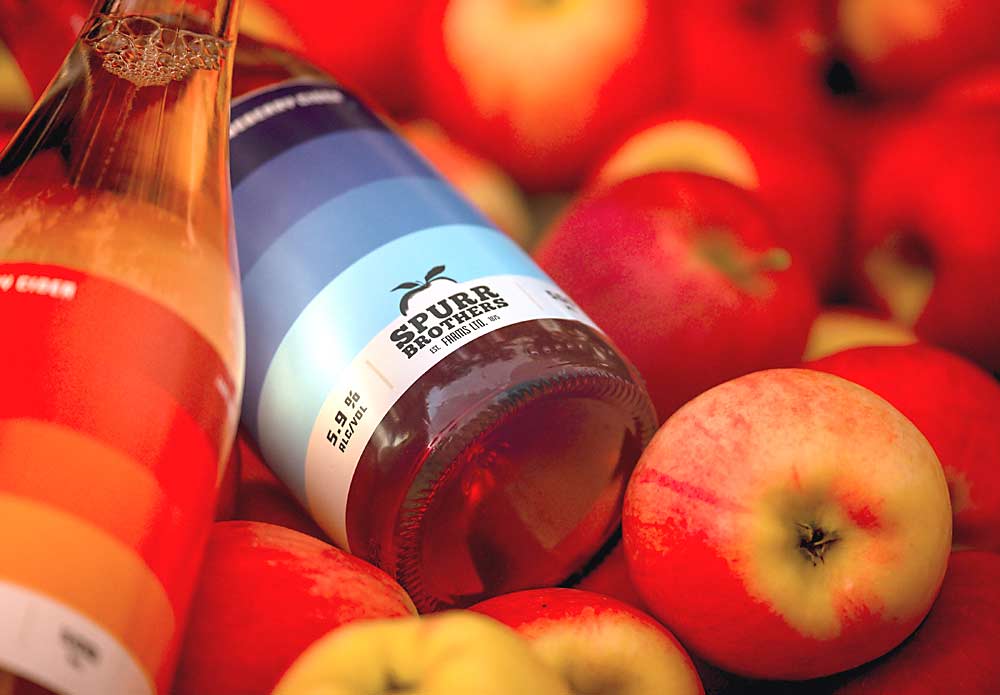
“We are constantly adjusting to make things work,” Jenereaux said. “We know when the busiest times are for each of us and try to step up to take some of the load.”
Most Spurr Bros. apples are sold through the Scotian Gold cooperative, with a small percentage sold through the farm market, along with the peaches and pears, she said.
Making it all happen are their more than 50 employees, both local and offshore workers from Jamaica and Mexico, Campbell said.
Despite the hectic day-to-day pace, the Spurrs always keep an eye on the future. Next fall, they’ll open a U-pick apple patch to accompany their U-pick sunflowers, pumpkins and other crops. They’re building a greenhouse to start vegetables and flowers for the farm market, which will be managed by Spurr and Jenereaux.
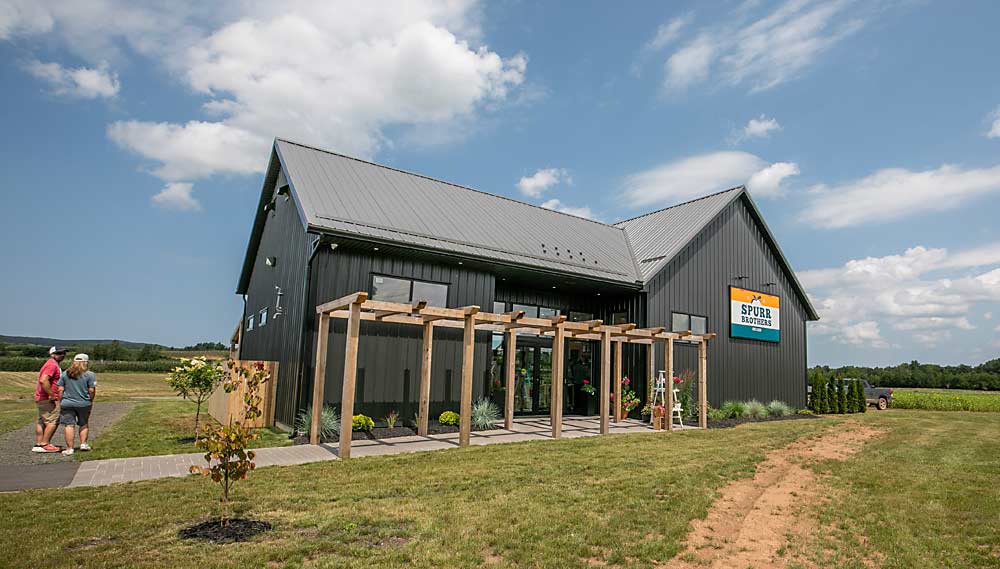
“We knew it was going to be a tough couple of years transitioning, but we are making it work, and we still like each other, so that’s success in my book,” Jenereaux said.
—by Matt Milkovich

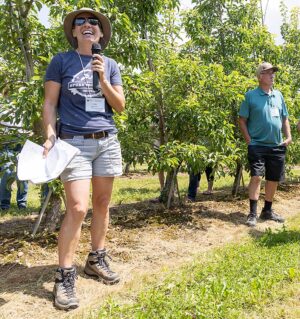





Leave A Comment